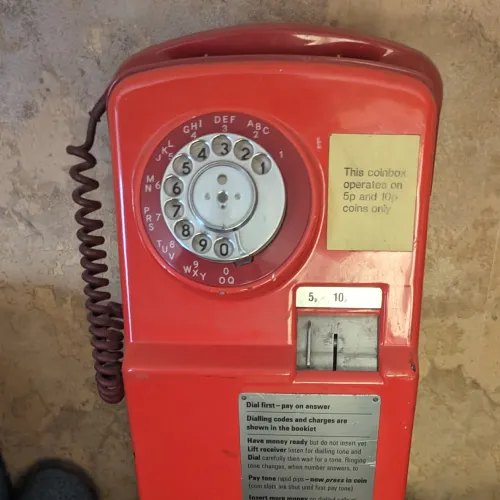WP was a great solution
I’ve been working with WordPress (WP) for what feels like forever—both for my own projects and for clients. It’s free, highly customizable, backward compatible (mostly), and perfect for everything from simple blogs to company sites and content-heavy platforms.
As I got deeper into the WordPress ecosystem, I started paying closer attention to the community and the folks behind the development of this free CMS. What I found was incredible—communities full of people giving back, sharing their time and knowledge, and building something bigger together. I even attended a few local WordPress meetups and was blown away by how welcoming and generous everyone was.
Now, I’m generally someone who rolls with the punches, but lately, I’ve found myself at a bit of a crossroads when it comes to WordPress. Should I keep using it? Recommending it? This post is my way of unpacking what I’ve seen and felt over the years. Hopefully, by the time I’m done, I’ll have some clarity about where I stand.
Controversies I Have Witnessed
Gutenberg Editor (2018)
The Gutenberg block editor landed with WordPress 5.0, and honestly, I remember being a little puzzled at first. So many posts were popping up about how awful it was, and I wasn’t sure what to make of it. But then I heard that the lead of the WordPress Accessibility Team had resigned over its inclusion. That’s when it really hit me.
Turns out, Gutenberg wasn’t just a little rough around the edges—it had performance issues, bugs, and major accessibility problems. I didn’t follow the drama super closely at the time, but this was my first real introduction to controversy in the WordPress world. It also lit a fire under me to prioritize accessibility in everything I build.
Classic Themes vs Block Themes (2021)
When WordPress 5.8 introduced block themes, it felt like the next logical step in the Gutenberg experiment. Over the years, Gutenberg had definitely improved, but this new theming approach left me scratching my head.
One of the things I loved about classic WordPress theming was its transparency—you could open up the PHP files and see exactly what the theme was doing. Block themes? Not so much. They rely on a mix of database storage and a special HTML-like markup, which makes tracking down and editing things way trickier.
And honestly? I can’t help but side-eye anything that wants to shove so much into the database. It just feels… risky.
WTF is happening? (2024 - Present)
And now we’ve got a new, bizarre drama unfolding in the WordPress world: Matt Mullenweg vs. WP Engine (and, honestly, it feels like vs. the community too).
- At WordCamp US in September 2024, Mullenweg referred to WP Engine as a “cancer to WordPress.”
- He accused WP Engine of misusing WordPress trademarks, claiming they were profiting off confusion with the official WordPress brand. (See awesome video by Theo about this. He also interviewed Matt Mullenweg.)
- WordPress.org banned WP Engine from accessing its resources, blocking their customers from updating plugins and themes.
- The WordPress team took over the popular Advanced Custom Fields (ACF) plugin, which was owned by WP Engine, and rebranded it as Secure Custom Fields (SCF). (Cue Darth Securitas narrowing her eyes.)
- A mandatory affiliation checkbox was added to WordPress.org logins, requiring users to confirm they weren’t affiliated with WP Engine.
- Reports surfaced that Mullenweg threatened to fire employees who spoke to the press about the situation.
- Prominent community voices critical of Mullenweg’s leadership—like Ryan McCue, creator of the REST API— were banned from the WordPress community.
- Automattic announced that they’re scaling back contributions to WordPress core to match WP Engine’s contribution. The ripple effect? Likely massive.
- Blog posts on WordPress.org have started sounding more like attacks than constructive, open-minded discussions.
Each one of these hits differently, but number 4? That’s the one that really made me stop and question if I still want to be part of this community.
My Conclusion
Looking back at all the different controversies, one thing stands out: the WordPress community is losing some truly good people.
I’ve been following everything closely since the WordCamp to end all WordCamps, and now that I’ve written it all out, I’ve made a decision—I can no longer recommend joining the WordPress ecosystem. My biggest concern isn’t the drama itself; it’s the security implications of everything Matt Mullenweg is doing. If he wants to have a personal battle with WP Engine, fine. But using that fight to hold code hostage? That’s not okay. Neither is the risk Automattic’s decisions are introducing to the ecosystem.
This decision isn’t one I take lightly, and it’s going to have a huge impact on my company. A lot of our clients—though not all—rely on WordPress. We’re going to need to have some serious internal discussions about alternatives. Should we build our own CMS? Go headless with JAMStack solutions? Maybe even just return to plain HTML sites for some projects. Whatever we choose, the migration and development work ahead will take significant time and resources.
That said, I’m grateful I’m not boxed into just PHP and WordPress. I have the ability to explore other options. But I can’t help but think about all the developers, designers, and site owners out there who don’t realize what’s happening behind the scenes. WordPress powers something like 45% of the web. The ripple effects of these changes are going to blindside a lot of people.
I still hold out a sliver of hope that things can turn around, but deep down, I worry this might be the beginning of the end for what was once an incredible open-source community. Sometimes, all it takes is the ego of one person to tear down something extraordinary.
